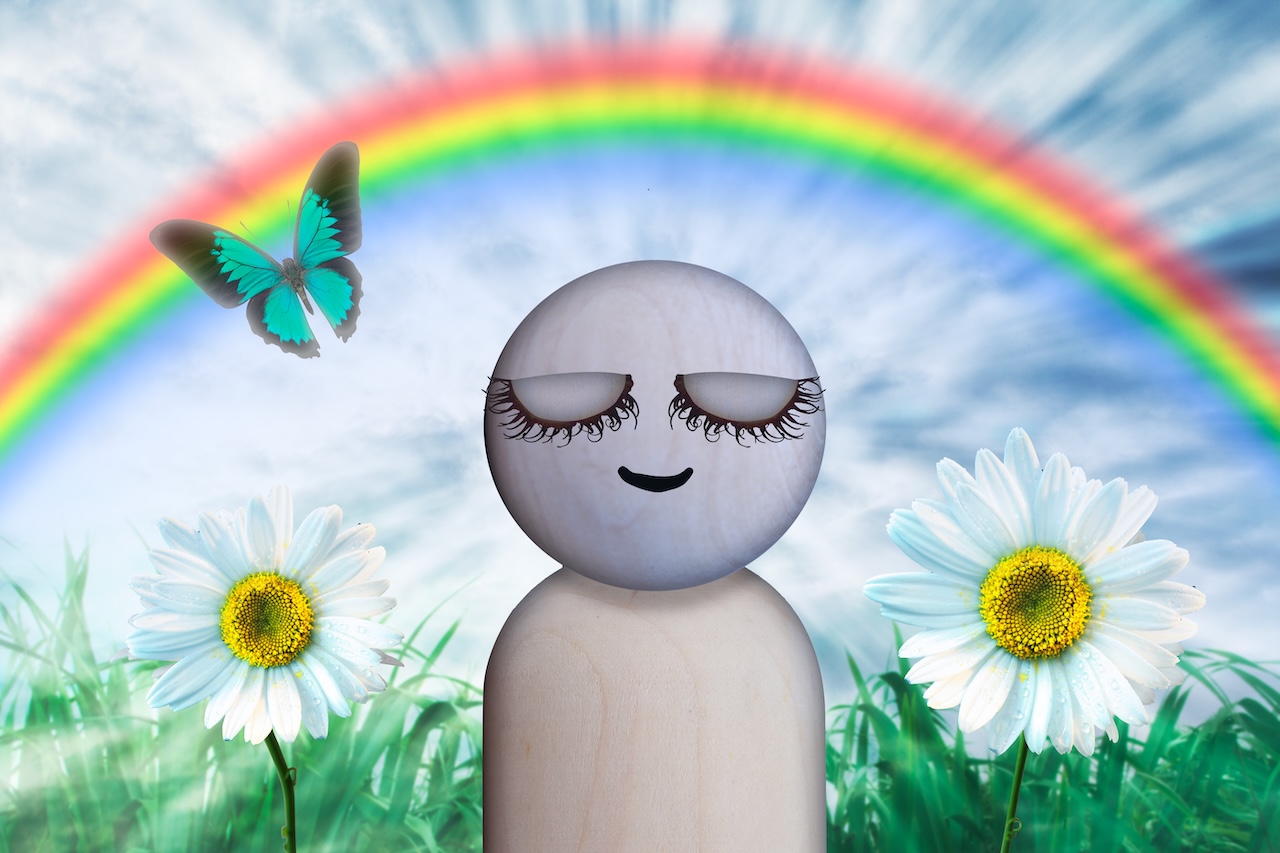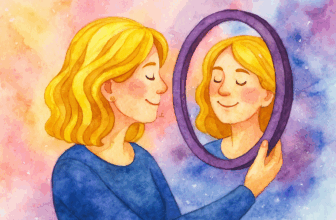
Take a look at our newest merchandise
“Delicate individuals ought to be treasured. They love deeply and suppose deeply about life. They’re loyal, trustworthy, and true. The easy issues typically imply essentially the most to them. They don’t want to vary or harden. Their purity makes them who they’re.” ~Unknown
I can image it completely—I used to be a freshman on the College of Notre Dame. It was my first semester on the faculty I’d dreamed of attending ever since I used to be somewhat lady. The whole lot felt new, and as I did the make-new-friends dance, I used to be hyperaware of how others perceived me.
Standing in line to buy soccer tickets with a bunch of women from my dorm, I used to be listening intently to the dialog of clever people discussing present occasions (Obama was operating for president).
I used to be instantly reminded of a distressing picture I had seen that morning of a household sitting exterior of their residence that had been foreclosed on because of the monetary disaster. I blurted out, “I get so unhappy after I learn the information. It could possibly actually simply break my coronary heart.”
All of a sudden, I felt the vitality within the circle shift. There was no instant response, and it was silent for what felt like an hour. Certainly one of my new acquaintances broke the silence, saying, “Wanna know what makes me completely satisfied? Have you ever guys been watching Gray’s Anatomy?” The dialog modified, and I stood in line, ashamed and never understanding why.
If this state of affairs sounds acquainted, you may possess the trait of emotional sensitivity. Emotional sensitivity is a time period utilized in Dialectical Habits Remedy (DBT) to explain a trait that causes people to really feel extra usually and intensely.
In different phrases, if you’re emotionally delicate, you are feeling quite a bit. Many individuals who determine as extremely delicate individuals (HSPs), empaths, and tremendous feelers possess this trait. Emotional sensitivity is a genetic high quality. The analysis signifies that if you’re delicate, you’ll carry this high quality all through your life.
Sensitivity and Openness
Emotionally delicate of us are typically extra open and susceptible than their non-sensitive friends. Lots of my purchasers have been instructed that they “put on their coronary heart on their sleeve” or are “too trustworthy.”
As an emotionally delicate particular person, I relate so deeply to the experiences of my purchasers. As a younger lady, I needed to share my ideas, worries, and pleasure with the world round me.
I keep in mind that after I was twelve years outdated, I went to a seashore in Santa Barbara with my household. I spent the entire day enjoying with a woman I had met—constructing sandcastles, doing somersaults into the waves, and catching and releasing sand crabs.
Once I returned to my dad and mom to eat a sandy peanut butter and jelly sandwich, my dad mentioned, “You make associates with somebody wherever we go.” This assertion was validating; I preferred being instructed that I used to be pleasant.
In highschool, I used to be infamous for making conditions “awkward” as a result of I’d instinctively name out dynamics as I perceived them (and, let’s be trustworthy, so many highschool dynamics are awkward).
In school, I used to be curious concerning the experiences of my friends and inspired openness in conversations; in consequence, I regularly stood within the nook at events having a “heart-to-heart” with a peer (who I understand now was most likely additionally a fellow emotionally delicate particular person).
It’s secure to say that the individuals in my life weren’t shocked after I turned a psychologist.
When Society Squashes Your Vulnerability
I discover that many consumers share comparable tales of a childhood of openness. So… what’s the “downside” with this tendency?
Delicate individuals really feel that, over time, they’ve misplaced this capability to be susceptible and genuine. As kids, they approached life with openness and curiosity, however as adults, they usually really feel closed off and disconnected from their feelings.
I imagine this phenomenon is a results of the society we dwell in. In lots of cultures, we worth “power” over sensitivity.
Of their guide Delicate: The Hidden Energy of the Extremely Delicate Particular person in a Loud, Quick, Too-A lot Phrase, Jenn Granneman and Andrea Solo describe this perspective as The Toughness Fable.
These authors, who each determine as HSPs, clarify that delicate individuals try to cover their temperament as a result of they’ve been taught that “sensitivity is a flaw, solely the robust survive, being emotional is an indication of weak point, empathy will get you taken benefit of, the extra you endure, the higher, [and] it’s shameful to relaxation or ask for assist” (p. 25).
In different phrases, emotionally delicate individuals obtain each express and implicit messaging all through their life that reiterates, “Don’t be susceptible.” Who desires to guide with openness when you’re going to get teased for it?
Moreover, throughout childhood, many emotionally delicate people study that their pure openness is regularly misunderstood. They could really feel they don’t completely “slot in,” and the awkward silences at events or the refined moments of invalidation are regularly internalized, which leads to profound emotions of disgrace.
This disgrace can, over time, lead emotionally delicate individuals to suppress their emotions (oftentimes by way of unhealthy means) or put on a social masks to “slot in.”
Emotionally delicate individuals discover that the one option to “be robust” is to resort to maladaptive behaviors, resembling substance use, consuming dysfunction behaviors, overworking, or avoidance. The behaviors might assist to numb emotions within the quick time period. The act of suppressing emotions might be so computerized that you could be not even bear in mind that it’s occurring. The issue is that after we shut off our feelings, we additionally lose the flexibility to be susceptible.
A Reminder: Your Vulnerability Rocks
When you think about the Toughness Fable, it’s comprehensible that you simply, as an emotionally delicate particular person, may really feel your self changing into much less open over time.
We exist in a society that usually misunderstands or outright rejects vulnerability. When your pure openness is met with invalidation, it could actually actually sting. It may be extraordinarily painful to share one thing deeply private, solely to have individuals stroll away or say, “Preserve that to your self” or “cease worrying a lot.” It isn’t shocking {that a} wave of disgrace may wash over you after experiencing these moments of invalidation over and over.
I write this text to remind you that, regardless of a number of the messages you may have acquired, your vulnerability is an unimaginable power.
Brené Brown, a psychologist who’s well-known for her analysis on vulnerability and disgrace, reminds her audiences that vulnerability is the birthplace of affection. Your capacity to be susceptible is what additionally means that you can really feel a way of belonging.
When you’re open, you exhibit braveness in a society that won’t perceive that vulnerability permits us to construct areas characterised by pleasure, empathy, and creativity. If you enable your self to be susceptible, you open up the potential of deeper connections and extra genuine interactions.
I do know it might sound somewhat tacky, however I actually imagine that your vulnerability is what could make this world a greater place. Maintain onto that, it doesn’t matter what the haters say.
About Mary Kate RoohanDr. Mary Kate Roohan is a scientific psychologist, drama therapist, and the founding father of Thrive and Really feel, a remedy apply in Pasadena, California. Using a mix of Acceptance and Dedication Remedy (ACT), Dialectical Habits Remedy (DBT), Eye Motion Desensitization and Reprocessing (EMDR), and inventive arts remedy strategies, she helps emotionally delicate individuals acquire again a way of management over their lives. She is very devoted to working with queer feelers and is dedicated to making a therapeutic house for every particular person she works with.
See a typo or inaccuracy? Please contact us so we will repair it!














